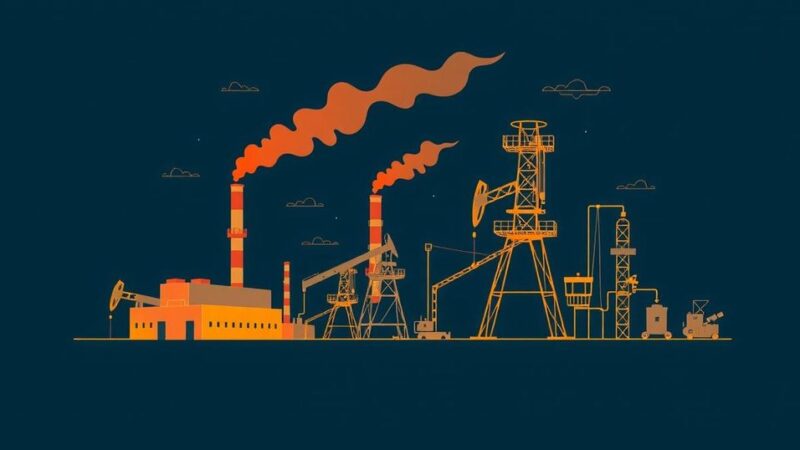Research indicates that a 13% reduction in beef production among wealthy nations could remove 125 billion tons of carbon dioxide from the atmosphere, promoting forest regrowth and aiding climate change mitigation. This shift could also enhance public health, given the associated risks of red meat consumption and environmental issues stemming from climate change.
A recent study highlights that even a modest decrease in beef production among affluent nations could significantly contribute to combating climate change. Researchers found that reducing beef farming by just 13% could remove an astonishing 125 billion tons of carbon dioxide from the atmosphere, exceeding the fossil fuel emissions accumulated over the past three years. This reduction in beef production would alleviate land usage for cattle grazing, facilitating the regrowth of forests on pasturelands, which could act as natural carbon sinks. Matthew Hayek, an assistant professor at New York University, stated, “We can achieve enormous climate benefits with modest changes to the total global beef production.” The restoration of forests can occur through natural processes, although more degraded environments may require human intervention to plant diverse, native trees to aid regrowth. This regrowth is anticipated to provide significant climate benefits over decades, with noticeable effects within just a few years. The potential for impactful change is especially pertinent in wealthier nations where former forests have been converted to grazing lands. In contrast, pasturelands in regions like sub-Saharan Africa maintain year-round growth, producing higher outputs of forage per acre. Hayek emphasized the need for “strategic improvements in the efficiency of cattle herds in some areas, coupled with decreased production in others.” More drastic alterations in livestock management could yield even greater reductions in carbon dioxide levels. For instance, relocating cattle from forested regions could lead to a staggering 445 gigatons reduction in carbon emissions by century’s end. Such initiatives would not hinder livestock grazing in native grasslands and dry rangelands, areas essential for global pasture production. The research tracked pasture productivity to determine the environmental benefits of reduced beef production. Findings suggest policymakers could incentivize forest regeneration while managing beef production effectively. Johannes Piipponen, a doctoral candidate, indicated that optimizing meat consumption in high-income areas could benefit both public health and the environment. Consuming less red meat has numerous health benefits as it is connected to various health issues, including cancer and heart disease. This shift would also mitigate the risks posed by climate change, such as the spread of vector-borne diseases and extreme weather events. Although forest regrowth alone will not resolve climate change, researchers advocate for its integration into broader climate strategies and food security policies.
The topic of reducing beef consumption arises from pressing concerns regarding climate change and the environmental impacts of livestock farming. Given that cattle production is a significant contributor to greenhouse gas emissions, reducing beef production may not only mitigate climate change but also promote public health. This study underscores the relevance of strategic agricultural practices in affluent countries where beef is a staple consumer product, aiming for a dual benefit of environmental sustainability and health improvements.
In conclusion, the study reveals a critical relationship between beef production and climate health, illuminating how a modest reduction in production in wealthy nations can significantly impact carbon emissions and public health. Reforesting previously grazing lands presents a viable path towards achieving climate targets. As the global community navigates climate challenges, the findings underscore the importance of re-evaluating dietary choices and agricultural practices to foster both environmental resilience and human well-being.
Original Source: www.healthday.com






